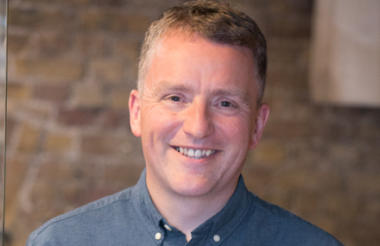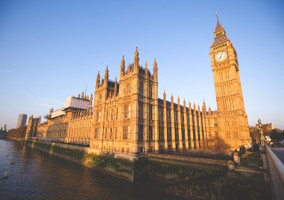Charities have a vital role in responding to the Covid-19 pandemic but the government seems to see the sector as a problem, NCVO's chief executive said yesterday.
Karl Wilding was giving evidence to a Digital, Culture, Media and Sport Committee inquiry about the impact of coronavirus on the charity sector.
He said: “We are part of the solution and it is frustrating sometimes that we are not seen as part of the solution, that we are seen more as a problem.”
He emphasised that charities are providing important public services and helping to organise volunteers during the coronavirus crisis, but suggested that this did not seem to be recognised by government.
Wilding said: “We are not here because I think that charities have some sort of right to survive, I do not. But I absolutely think that people have the right to the services that we provide.
“I feel frustrated at times at the perception of us in government, and I do not know if this is policy or political, but the understanding of the role of the modern voluntary sector lags somewhat behind what the reality is.
“We are not better than the public sector, but we are partners with the public sector.”
'Informed but not involved'
The Department for Digital, Culture, Media and Sport and the Treasury have said that they are working on a specific support package for the charity sector, which is expected to be unveiled this week.
Wilding said that his staff have been working every day for the last two weeks providing the government with evidence of need, but “at times it feels like we are providing the same evidence in new and different ways. I feel at times that we are informed but not involved”.
He referenced last Wednesday's Prime Minister’s Questions when the sector was told there would be support. Wilding said: “I have no details of what that package will look like, I have no details of what the scale of that package would look like.”
Charity sector to lose £4bn in 12 weeks
NCVO is expecting that the loss of income during the next quarter to the charity sector will be in the region of £4bn.
Wilding said that the National Emergencies Trust fundraising appeal has a part to play, but that it will not fill the gap.
He said this income loss is for two main reasons. First, because charities have shifted to a more mixed economy where they trade, and are no longer reliant solely on grants from the government. So just like businesses, charity trading income has halted.
Secondly, lots of charity fundraising relies on people coming together. Because of social distancing measures, these have stopped, so “we find ourselves in a situation where the level of need that many organisations are facing is increasing, but the income those organisations generate has stopped”.
He said: “There are bits of the sector that are really in serious trouble at the moment and I am particularly thinking about those organisations that are working with black or minority ethnic communities and working with those people who are most marginalised.
“They came into this crisis already in some trouble and they are helping people who are furthest away from the state. It's critical that we get support to them.”
Furlough scheme will work for around one in three charities
When asked if furloughing employees was an answer to the loss of income, Wilding said: “The furloughing scheme is welcome and it works for some organisations and we agree with the intent, but unfortunately the design does not match the intent.”
He said NCVO’s very rough calculation was that a maximum of one in three charities can deploy the furloughing scheme.
“Essentially the furloughing scheme means that you are standing down staff when at exactly the time when you want them to step up. Mothballing staff when demand is increasing is the opposite of what is needed, we need to mobilise them” he said.
He explained that if a charity runs a hospice, for example, it can stand down some shop staff, but “the last thing you can do now is furlough the very people that are delivering the service that is taking the pressure off our NHS”.
“So you would not want to furlough many public staff at this point in time and equally you would not want to furlough many charity staff,” he said.
The furloughing rules also say that if you receive any public money that contributed towards employment costs, you cannot furlough those staff, so “even if the intent is right, the design just does not work for vast swathes of the charity sector”.
Wilding also spoke about allowing staff from the same organisation to volunteer for the charity from which they have been furloughed. At the moment, he said: “To be frank we may end up wasting huge amounts of charitable resource setting up an exchange scheme”.
Related articles
Coronavirus: What charities need to know
Latest news, analysis and advice about the coronavirus for charities and social enterprises.












